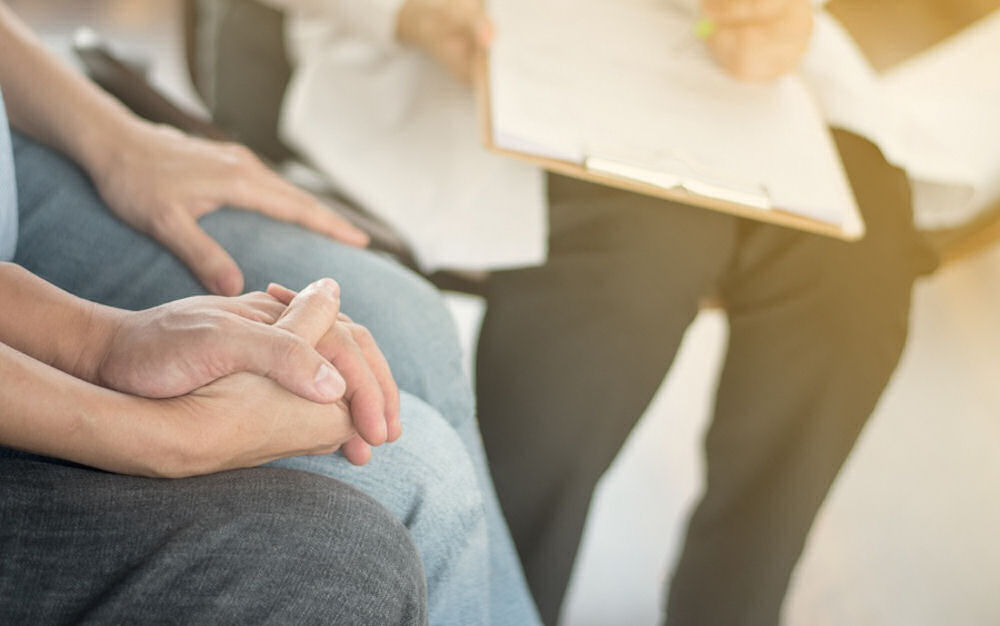So you have taken out drugs in your system, what’s next? Relapse prevention techniques are key to maintaining sobriety after completing treatment for your substance abuse. Relapse prevention techniques help recovering addicts identify and avoid triggers that could lead to relapse. Relapse prevention techniques can be divided into three categories: environmental, behavioral, and emotional.
At Free by the Sea, our addiction treatment center in Ocean Park, Washington, teaches people how to effectively utilize relapse prevention techniques to maintain their sobriety during and after recovery.
Emotional Relapse Prevention Techniques
Jump to Section
Emotional relapse prevention techniques involve making changes to your surroundings to avoid triggers that could lead to relapse. For example, if you live in an area where drugs are easily accessible, you may want to consider moving to a different neighborhood. You may also want to avoid places where you used drugs in the past, such as bars or clubs.
Emotional relapse prevention techniques also involve managing your emotions to avoid rto example, if you’re feeling stressed, you may want to find healthy ways to cope with that stress. You may also want to avoid situations that trigger negative emotions, such as being around people who use drugs.
Behavioral Relapse Prevention Techniques
Behavioral relapse prevention techniques involve changing the way you behave to avoid relapse. For example, if you used to drink alcohol heavily, you may want to avoid going to places where alcohol is served or spending time with those who engage in alcohol.
For example, if you usually drink alcohol when you’re socializing with friends, you may want to find new activities to do with them that don’t involve drinking. You may also want to avoid places where you know there will be drugs or alcohol.
Environmental Relapse Prevention Techniques
Environmental relapse prevention techniques involve changing your environment to avoid relapse. For example, if you used to use drugs at a certain location, you may want to avoid that location. You may also want to remove drug paraphernalia from your home.
Cognitive Relapse Prevention Techniques
Cognitive relapse prevention techniques involve changing the way you think to avoid relapse. For example, if you have negative thoughts about sobriety, you may want to replace those thoughts with positive ones. You may also want to avoid thinking about using drugs.
Why Is It Important to Stay Committed to Recovery to Avoid Relapse?

It is important to stay committed to relapse prevention techniques to avoid relapse. After completing treatment for substance abuse, it is common for people to relapse. Statistics show that 40-60% of people who complete treatment for substance abuse will relapse within the first year. However, relapse rates decrease significantly when people remain committed to their recovery and utilize relapse prevention techniques.
Relapse Prevention Techniques
There are a variety of relapse prevention techniques that can be used to avoid relapse. Here are the relapse prevention techniques:
Stay Aware of Your Triggers
One of the best relapse prevention techniques is to stay aware of your triggers. A trigger is anything that can cause you to start using drugs or alcohol again. Some common triggers include stress, boredom, and being around people who use drugs or alcohol. It’s important to be aware of your triggers so you can avoid them or have a plan to deal with them if they arise.
Develop a Support System
Another relapse prevention technique is to develop a support system. This can include family, friends, and fellow recovering addicts who understand what you’re going through and can offer support and encouragement. Having a support system will help you stay accountable and motivated to stay sober.
Having a support system of family and friends who understand addiction and recovery can help prevent relapse. These people can provide emotional support and help to identify high-risk situations.
Focus on Self-Care
Relapse prevention must also focus on taking care of yourself. This includes maintaining a healthy lifestyle, getting regular exercise, eating a balanced diet, and getting enough sleep. Taking care of yourself will help to reduce stress and anxiety, which can trigger a relapse. It’s also important to find healthy coping mechanisms to deal with triggers and is also important cravings.
Relapse prevention is about more than just avoiding drugs and alcohol. It’s also about taking care of yourself physically and emotionally. This includes maintaining a healthy lifestyle, managing stress, and having healthy coping mechanisms in place.
Build a New life in Recovery
Another relapse prevention technique is to build a new life in recovery. This means finding new hobbies and activities that you enjoy and that don’t involve drugs or alcohol. It’s also essential to build a support network of friends and family who will support your sobriety.
Talk about Your Feelings
It’s also important to talk about your feelings. If you’re feeling triggered or tempted to relapse, reach out to a friend or therapist for support. Talking about your feelings can help to reduce the urge to relapse.
Practice Relaxation Techniques
Relaxation techniques such as yoga, meditation, and deep breathing can help to reduce stress and anxiety. These techniques can also help to prevent relapse.
Try to Stay Busy
Staying busy can also help to prevent relapse. If you have free time, try to fill it with activities that you enjoy and that don’t involve drugs or alcohol.
Keep Yourself Grounded
In addition to staying busy, it’s also important to keep yourself grounded. This means avoiding situations that may trigger a relapse. If you’re in recovery from alcohol addiction, for example, you should avoid places where alcohol is served.
Attend Therapy Sessions
If you’re in recovery, chances are you’re attending therapy sessions. These sessions can be incredibly helpful in relapse prevention. Therapists can help you identify your triggers and develop a plan to deal with them. Therapy can also help you work through any underlying issues that may have contributed to your addiction.
Participate in Self-Help Groups
Another relapse prevention technique is to attend self-help or support groups. These groups can provide you with support and encouragement. They can also help you to learn about relapse prevention techniques.
Self-help groups like Alcoholics Anonymous or Narcotics Anonymous can also be helpful in relapse prevention. These groups provide support and camaraderie, and they can also be a great resource for information and advice.
Get Regular Exercise
Regular exercise is another important relapse prevention technique. Exercise releases endorphins, which have mood-boosting effects. It can also help to reduce stress and anxiety.
Exercise is a great way to relieve stress and improve your mood. It’s also a great relapse prevention technique. Exercise can help to distract you from cravings and urges. It can also help to boost your mood and energy levels.
Eat a Healthy Diet
Eating a healthy diet is important for overall health and well-being. It can also help to reduce stress and anxiety, two common triggers for relapse. Eating a healthy diet can also help to prevent relapse. A healthy diet can help to reduce stress and improve your overall mood.
Eating a healthy diet is important for overall health, but it can also help to prevent relapse. A healthy diet gives you the energy you need to stay active and keep up with your recovery program. It’s also important to avoid processed foods and sugary snacks, which can contribute to cravings and relapse.
Get Enough Sleep
Sleep deprivation can lead to irritability, anxiety, and depression. These are all common relapse triggers. Getting enough sleep can help to prevent these issues. Getting enough sleep is also important for relapse prevention. Lack of sleep can increase stress and anxiety, which can lead to relapse.
Sleep plays an important role in relapse prevention. When you’re tired, you’re more likely to make poor decisions that could lead to relapse. Aim for seven to eight hours of sleep each night to maintain your sobriety.
Manage Stress
Stress is a common trigger for relapse. Learning how to manage stress in healthy ways can help to prevent relapse. Stress management includes exercise, relaxation techniques, positive thinking, and time management.
Avoid High-Risk Situations
Identifying and avoiding high-risk situations is an important relapse prevention technique. High-risk situations are those that increase the temptation to use substances or make it more likely that relapse will occur.
Participate in Treatment
Continuing to participate in treatment after leaving rehab can help to prevent relapse. This might include attending therapy, 12-step meetings, or other support groups.
How to Make a Relapse Prevention Plan
A relapse prevention plan is a tool that can help you stay on track in recovery. This plan includes identifying your triggers, making a list of coping strategies, and having a support system in place.
One of the best relapse prevention techniques is to develop a relapse prevention plan. This plan should include what you will do if you feel like you’re going to relapse. It should also include a list of people you can call for support.
Identify Your Triggers
Triggers are anything that makes you want to use substances. They can be external triggers, such as being around people who use drugs or being in places where drugs are used, or internal triggers, such as stress or boredom. By identifying your triggers, you can make a plan to avoid them.
Make a List of Coping Strategies
Coping strategies are things that you can do to deal with triggers and cravings. Some coping strategies include:
- Exercise
- Deep breathing
- Meditation
- Spending time with supportive people
Attending support groups
Build a Support System
A support system is a group of people who will offer encouragement and help you stay on track in recovery. This could be friends, family members, your therapist, or fellow members of a 12-step program. Having a support system in place can help you when you’re struggling with relapse prevention.
Free by the Sea Can Help Create Relapse Prevention Techniques

Our relapse prevention program is designed to help you identify your triggers and develop healthy coping mechanisms. We offer intensive outpatient programs, outpatient treatment programs, adult programs, various types of therapy, and support groups. If you or someone you know is struggling with relapse, please reach out to us for help.

Dr. Richard Crabbe joined our team in 2019 as our psychiatrist and medical director. He attended the University of Ghana Medical School where he became a Medical Doctor in 1977. From 1978 through 1984, he was a medical officer in the Ghana Navy and provided a variety of services from general medicine to surgeries. He received his Certificate in General Psychology from the American Board of Psychology and Neurology in 2002.

 November 21st, 2022
November 21st, 2022










